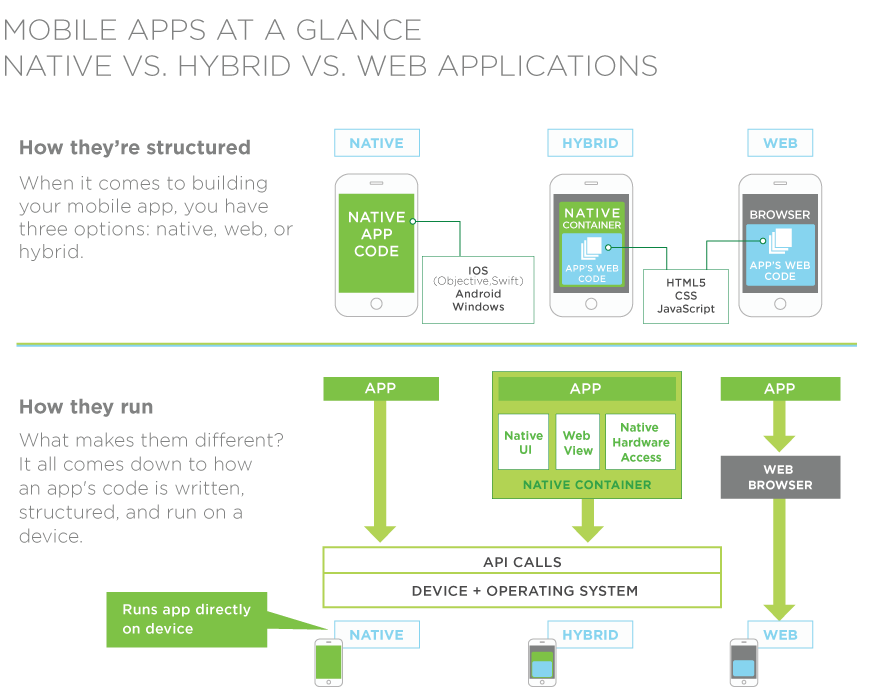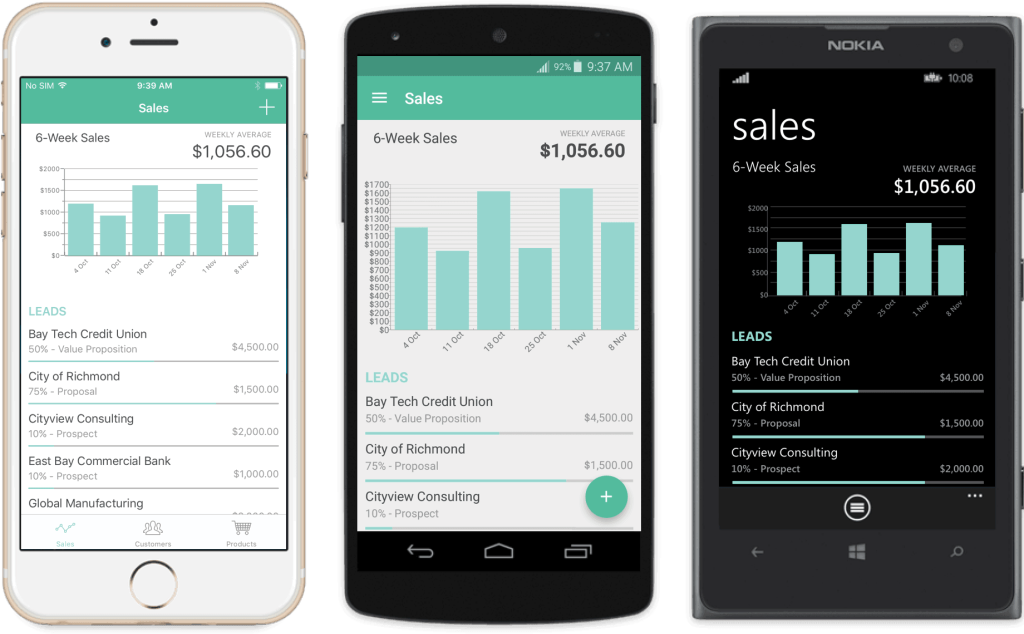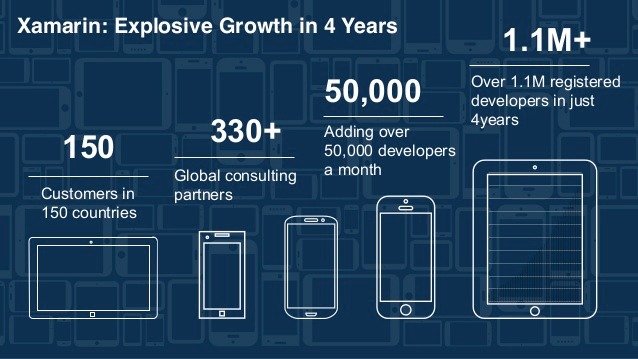Save time, money and headaches with Xamarin. It sounds like a pain reliever, but Xamarin is actually a fantastic tool that’s been part of our development software for over 3 years now. Xamarin is widely used for development, testing and monitoring of cross-platform apps.
It uses C# and .NET language and its popularity is growing rapidly due to the fact it allows developers to write your app's code once, then publish it across multiple platforms. Developers no longer need to design a separate app for each system. Our team can generally share around 75% of developed code across all major mobile platforms including: iOS, Android and Windows. So it is a pain reliever!
Xamarin provides us two clear advantages: It saves time in development which in turn reduces our clients’ overall costs. Why? We can efficiently create compelling native experiences across iOS, Android and Windows Mobile using a common codebase (C#) then roll it out to practically any mobile platform.
In one recent Android and iOS project, we estimated our team saved 35 percent of our development time by writing the app only once with C# within the Xamarin platform. That’s a huge gain – especially when the majority of our projects have crucial deadlines…and clients often want to add one extra feature before the app’s release.

What Apps are Best for Xamarin?
Now we are by no means saying Xamarin is perfect for every project, if it was we’d be using it to build every app!
We have used Xamarin for many kinds of apps. Process driven apps, social media apps, apps which connect to external hardware like Bluetooth Sensors. It’s solid.
We’ve even found Xamarin offers some big advantages for enterprise level companies as well. The platform creates efficiency benefits when rapid scaling.
If you are working on one enterprise app project, it's common that other projects get delayed until completion. This means there’s always an opportunity cost associated with application development. The quicker that large businesses can complete a project, the faster you can move to the next and continue company growth.
When Shouldn't I Use Xamarin?
Xamarin isn’t a magic formula. It has its disadvantages.
The major concern with Xamarin is its inability to use many open-source libraries for iOS and Android development. Building an app in Xamarin means building things in a completely different language than iOS and Android. This means any Xamarin app is limited to only the Android and iOS libraries which have been rewritten for Xamarin. These libraries are growing rapidly but the reality is if you want a feature that Apple offers but Xamarin doesn't have yet, it's likely not to happen.
Although on the surface, Xamarin ensures good performance and customizable User Interface (UI) that looks native, underneath it requires unique UI code for each separate platform since Xamarin uses its own native UI components. So UI development may be quite time-consuming in this case. Moreover, code developed in the Xamarin environment cannot be reused for native applications (e.g. iOS, Android).
What App's don't work well with Xamarin?
Those who have English as their second language will understand that it takes a little longer to read something in English than it would in your native tongue.
So too with Xamarin. If your app is developed in Xamarin, it is not communicating with your phone's operating system in its native language, because it has been coded using Xamarin’s own (non-native) language.
Xamarin still struggles to handle highly visual aspects of UI easily. Many rich UI elements would be very difficult and time consuming to build in Xamarin. For example, an animated game like “Angry Birds” would not be suitable to code with this software.
Overall any app built in Xamarin is going to be a bit larger and a bit slower than if you developed it as a native app.

Why should developers trust cross-platform software when building native seems safer?
In the past, many of our clients preferred us to code in native app languages. Some of our clients have also been hesitant to trust Xamarin because they weren’t as prominent as Google, Apple or Microsoft yet.
Now that Microsoft is investing in the platform we've seen a lot more people asking us to build specifically on Xamarin. Our Xamarin projects have increased by over 80% since Microsoft endorsed the company.
Our development team has expertise in many coding languages. Each language has its own strengths and weaknesses, so the decision of which language to code with depends on many variables, including time, budget, and what will make the app most user friendly. Xamarin allows many apps to be developed faster and it saves money for many clients, but only if it truly suits the needs of their app.
Considering what your app may require in the future is just as important as what it needs to do today.
Our expert team will educate you on the advantages and disadvantages of building your specific app on Xamarin.
